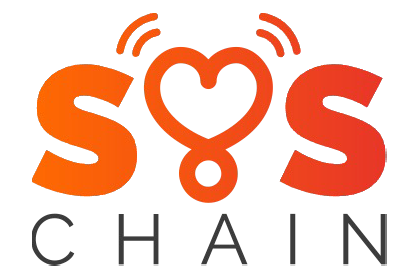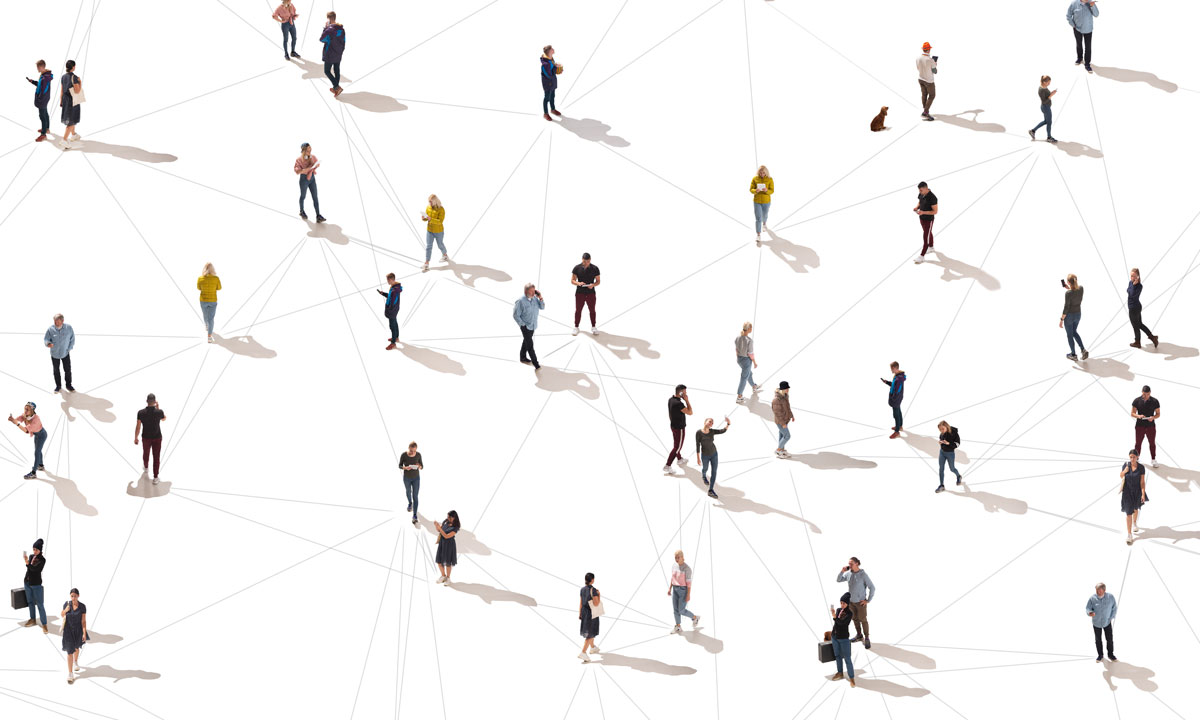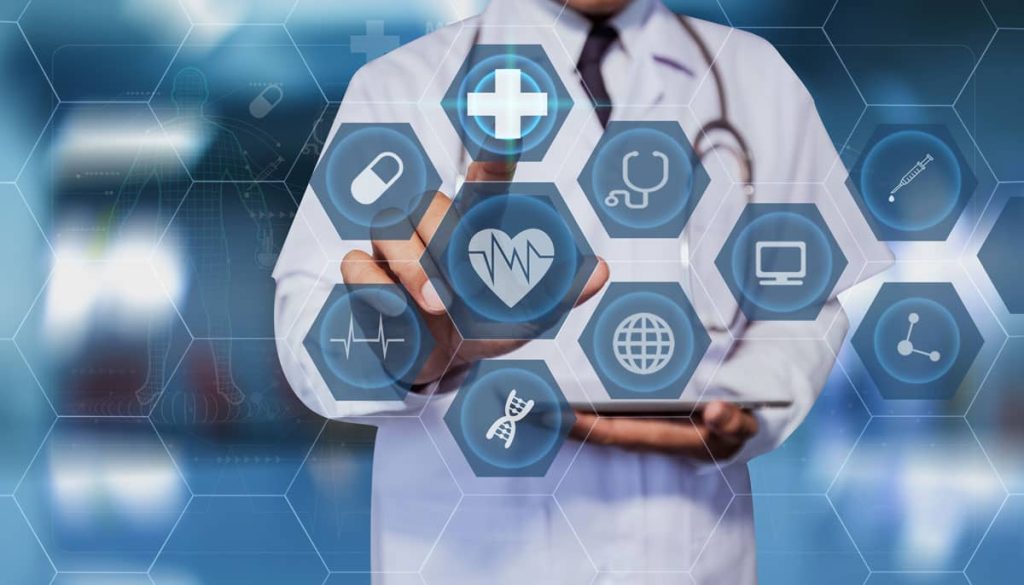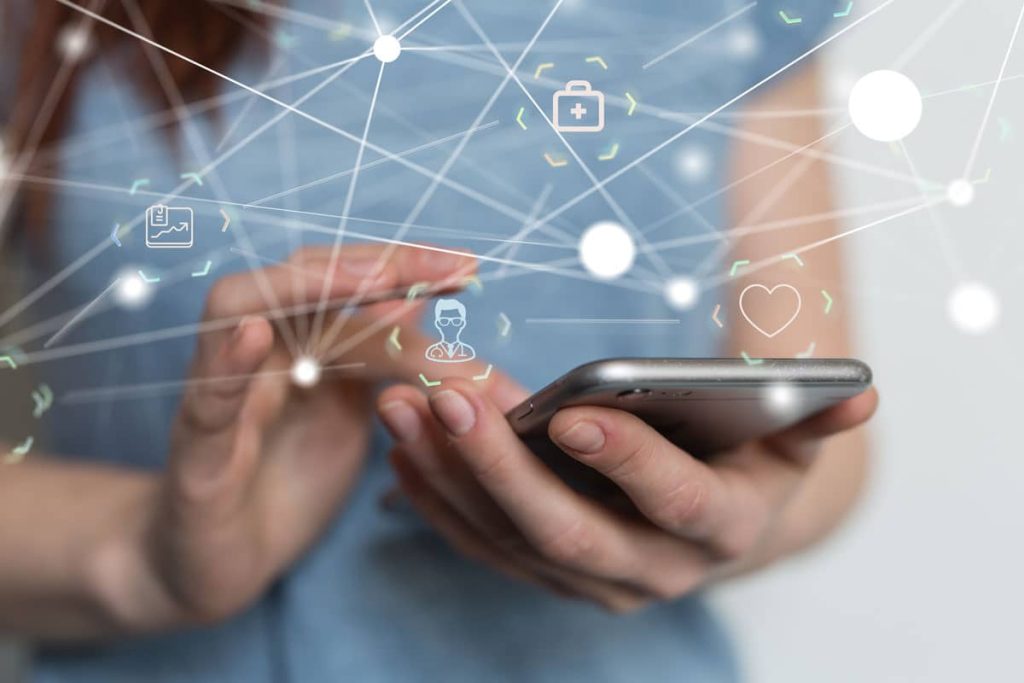Shared Data Space with Unified Health Index for Emergencies, Pandemics, Care Continuity and Research Studies
SOSCHAIN

Introduction
SOSCHAIN is a collaborative shared data space designed to enhance data accessibility and security through the use of a Unified Health Identifier for patients, operating on the patented Unified Identification Protocol for Training and Health, based on the technology previously developed by ConnectHealth. SOSCHAIN aligns with international healthcare and shared data space standards, enabling seamless interoperability with other shared data spaces and healthcare services worldwide to support the implementation of a Unified Health Index (UHI), which is especially crucial during emergencies and catastrophic events.
A New Paradigm
The patient’s data index functions like the index of a book, allowing patients and practitioners to construct the unified and international patient summary by retrieving the pages or documents of the distinct sections (like chapters in a book) from various patient portals, using healthcare standards approved by G7, EU, and other countries. This approach enables patients to maintain a Unified Health Index that is automatically updated, regardless of their digital literacy or disabilities, enhancing patient security, especially in emergencies
SOSCHAIN
How it works
The Unified Health Identifier (patented) addresses a critical issue: the lack of a unique, unified patient ID that links health data and identifiers across systems and regions. With SOSCHAIN practitioners will be able to request and obtain access to read records created and maintained in other healthcare systems or patient portals across borders through the patient’s data index and registered consents. This enhances response in emergencies and care continuity, and its goal is to reduce inefficiencies, data fragmentation, administrative costs, misdiagnoses, medical errors, complications, and readmissions, and supports a more holistic approach to healthcare delivery.
Public and private healthcare services can now collaborate to ensure that each patient has a unified data index that consolidates their entire medical history. This enables seamless data sharing within a territory and even internationally when patients travel. This is particularly beneficial in emergencies or when patients need care abroad, as authorized providers can securely access their health records across borders.

Additionally, patients will be able to receive communications from trusted sources (helping to prevent fake news and false alarms), and request services from civil protection agencies by sharing their Unified Health ID, location, and additional information, such as the type of emergency, severity (triage), number of people affected, and other identifiers. This is particularly useful when phone lines are overwhelmed.

ConnectHealthSOSCHAIN
Features

Permissions
The consent to activate the index for a patient in SOSCHAIN may include permissions for various services, such as:.
- Unified Health Index: Consent to aggregate metadata, specifically document URLs and the sections to which these documents pertain. Patient Management: Consent to read and securely store specific resources, such as appointments, encounters, coverage, and communications (e.g., encrypted messages from healthcare, insurance, and protection services, as well as from research studies the patient is participating in).
- Emergency Treatment: Consent for emergency service practitioners (e.g., doctors, nurses, paramedics) to access the patient’s Unified Health Index, enabling access to patient data across multiple healthcare providers as authorized.
- Data for Statistics: Consent to use de-identified healthcare information (such as country, clinical code, year of birth and birth sex) for statistical and research purposes. Re-identification of this information is prohibited under any circumstances.
- Protection Services: Consent for certain professionals in emergency situations to access identifiers of Bluetooth devices associated with the patient and specific sections of the Unified Health Index.
- Travel Services: Consent for specific professionals in emergency situations to access certain sections of the Unified Health Index, allowing them to retrieve necessary data such as allergies and intolerances (e.g., latex, food allergies) or implanted medical devices (e.g., a pacemaker, which would prevent the use of a defibrillator)
Information
Healthcare and civil protection services will be able to deliver notifications and communications to the SOSCHAIN service specified in the patient’s consent, which will then relay updates to the patient or their legal guardians as outlined in the signed consent. This process creates a comprehensive and up-to-date view of a patient’s medical history that aligns with international standards.
In this way, patients and authorized parties (e.g., family members, caregivers) can receive secure encrypted data as they provide consent for each healthcare service to communicate with the authorized SOSCHAIN service. This service functions as a gateway or bridge between the various services and the patient (the owner of the data).


Security
SOSCHAIN enables individuals to maintain an up-to-date data index in real-time through consents, as mandated by data protection laws, which is especially important in emergencies (e.g., unconsciousness, disorientation) or for those without digital literacy or with certain disabilities (visual, cognitive, etc.).
Further, the index can link health records stored in various patient portals worldwide, based on subscriptions from authorized healthcare providers who verify the SOSCHAIN service authorized by reading the blockchain of the shared data space
Designed with legal compliance and security by design at its core, SOSCHAIN activates the data index for a patient upon receiving signed consent. At this point, the patient or their legal guardians receive a public Unified Health Identifier (patented technology) along with a private registry code.
The private registry code constitutes part of the “seed” used to generate the patient’s private cryptographic keys, which are post-quantum resistant. The remaining portion of the seed is securely stored by the SOSCHAIN Service chosen by the patient in the consent. This setup ensures that the private cryptographic keys required for encrypted communications and data signing can only be reconstructed using the private code known solely to the patient or their guardians
SOSCHAIN
Functionalities

SOSCHAIN is designed with security and resilience at its core. It enhances data exchange security by implementing and extending the Financial API Security Profile, using encrypted messages to prevent malware implants that could compromise HTTPS security and access confidential information (e.g., malware like Russian Snake that monitors network traffic).
Users will be able to:
- Be located in case of emergencies by any of the identifiers associated with the Unified Health Identifier (legal or device identifiers)
- Carry and share data for care continuity and emergencies by signed consents (personal data, health data, contacts for emergencies, etc.) through the Unified Health Identifier and the Unified Health Index associated.
- Send requests for assistance to healthcare and civil protection services including the location together with the type of emergency, Unified Health Identifier and relevant data, which may include information about implanted pacemakers (e.g., when defibrillators cannot be used), essential medications (e.g., insulin), and allergies to medications like penicillin or materials like latex (important for intubation), among others.
- Receive encrypted notifications through their selected SOSCHAIN Service, enabling a secure, responsive healthcare ecosystem centered on patient privacy and control.

Broad Industry Benefits
SOSCHAIN can be personalized and deployed for various types of organizations, offering unique advantages across sectors based on patient consent:
- Healthcare: Providers can access authorized data for emergencies and care continuity, supporting public-private collaboration in disasters. Blood banks, hospitals, and health agencies can use anonymized data for epidemic and crisis preparedness.
- Protection Services: Civil protection agencies, firefighters, and lifeguards can access essential health information authorized like allergies and medical implants, ensuring timely interventions. Patients can receive notifications from trusted sources, such as emergency plans and preparedness alerts.
- Pharmacy: Pharmacies can access medication information and implanted devices when authorized, to provide necessary treatments and track medical devices in patients, supporting quality control and recall management.
- Research: Research organizations can obtain statistical insights and anonymized patient “digital twins,” accelerating treatment development, especially during pandemics.
- Government: Public health bodies will be able to utilize aggregated, de-identified data across regions to monitor disease trends and improve readiness with cross-border health information.
- Insurance: Insurers can register plans and coverages, enhancing verification of their offerings and reducing fraud across different coverage types (e.g., health, life, funeral). This is particularly crucial for elderly individuals or those with disabilities, as well as in emergencies, enabling automatic approvals for necessary treatments (e.g. when patients are unconscious or disoriented). This approach ensures prompt medical responses and promotes inclusivity.
- Travel: Certified travel personnel access crucial health information during in-flight emergencies, enabling rapid responses to severe conditions like allergies or heart issues.

Advanced Security for Unified Digital Identity in Healthcare
SOSCHAIN will integrate with major identity providers, including the European eID, for seamless user authentication. Each patient receives a private registry code for enhanced security after logging in with the identity provider. This code, combined with another part stored in the SOSCHAIN Service selected by the user, enables them to regenerate their cryptographic keys.
Key security features include:
- Resilient Cybersecurity: Patient data and communications are secured against cyber threats, even if part of the system is compromised.
- Post-Quantum Resistant Algorithms: Cryptographic keys are designed to withstand post-quantum threats, ensuring long-term data protection.
- Trusted Verifiable Credentials: Signed by a SOSCHAIN Service, these credentials streamline processes and reduce bureaucracy by including essential information for related individuals, such as a mother’s birth certificate or a death certificate.
SOSCHAIN
Join the SOSCHAIN Network
Experience the impact of a unified health index for safer, connected healthcare worldwide.
More information: https://github.com/soschain/docs



